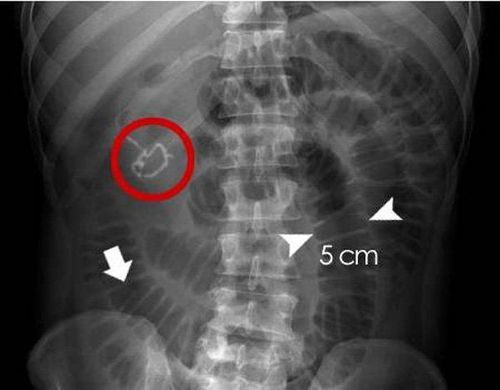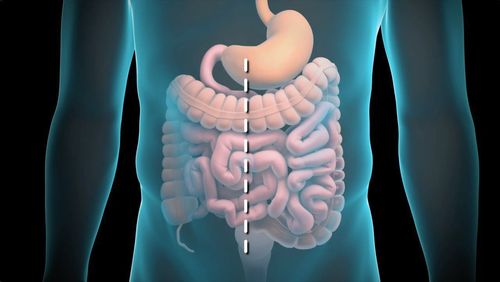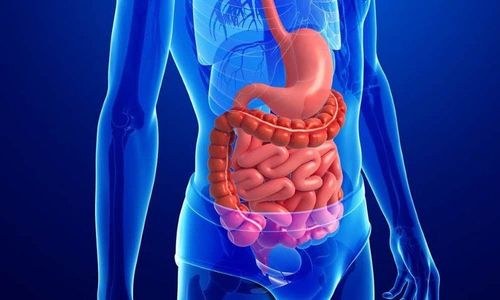This is an automatically translated article.
The article was professionally consulted by MSc Vu Van Quan - Department of General Surgery & Anesthesia - Vinmec Hai Phong International General Hospital.Small bowel obstruction is a blockage of substances in the intestinal lumen. This is one of the dangerous and unpredictable symptoms for infants from 3 months old to 2 years old. If not detected and treated promptly, it can lead to bowel necrosis, intestinal perforation, life-threatening. sick.
1. Causes of small bowel obstruction
Causes of small bowel obstruction are divided into two main categories: paralytic ileus or mechanical causes. Of these, small bowel obstruction due to impotent ileus occurs more commonly but is usually self-limited and does not require surgical treatment. Mechanical small bowel obstruction may be due to internal or external effects.
Other causes of bowel obstruction include:
Hernia: The part of the intestine that protrudes into the abdominal wall of the body; Intestinal adhesion. Diverticulitis: this is a condition in which small, bulging pouches in the digestive tract become inflamed; Fecal gravel. In addition, some less common causes of small bowel obstruction include: volvulus, gallstones, worms, intussusception, abscesses, congenital lesions...
2. Signs of small bowel obstruction
Typical symptoms of small bowel obstruction are:
Abdominal pain: The pain appears in the epigastrium, around the navel. The patient has severe cramping pain, severe pain, many cases of fainting, ... Vomiting a lot. Stomach full of bowels and bowel movements

3. Diagnosis and treatment of small bowel obstruction
3.1 Diagnosis of small bowel obstruction To accurately diagnose the disease, the doctor will rely on the symptoms, medical history and perform a clinical examination, perform tests including:
X-ray of intestinal obstruction: Abdominal X-ray may show signs of trapped air and site of obstruction, but an obstruction X-ray is not always the most viable method for diagnosing bowel obstruction. CT scan: This method provides more detailed images to help doctors identify the blocked section of intestine. Ultrasound: This method is often used to identify intestinal obstruction in children. Contrast Colonoscopy: The doctor inserts a thin, lighted tube through the rectum and into the large intestine to examine the lining of the colon.

3.2 Treating an intestinal obstruction? Medical treatment: Intensive resuscitation in case of shock, fasting, parenteral nutrition, nasogastric tube, antibiotics, analgesia, ... Abdominal interventional surgery: when bowel obstruction is complete, treat Medical treatment failed.
Intestinal obstruction is one of the diseases that need urgent emergency care to reduce the risk for the patient. If diagnosed and treated promptly, the prognosis is good. In case of delayed treatment, the ability of the intestine to recover after treatment is less. Patients will experience severe shock due to toxic infection, due to absorption of toxins through the necrotic intestinal wall and peritonitis, leading to high mortality. Therefore, if you have any symptoms of intestinal obstruction, you need to go to the nearest medical facility for timely examination and treatment.
Vinmec International General Hospital has full technical facilities and qualifications to effectively implement methods of diagnosis and treatment of intestinal obstruction. There is a team of well-trained and experienced gastroenterology specialists; professional medical service quality, prompt examination and timely treatment for many difficult cases
Master. Doctor. Vu Van Quan has more than 10 years of experience working in the field of General Gastroenterology, specializing in examining and treating surgical pathologies of the gastrointestinal tract, liver, bile, pancreas and diseases of the abdominal peritoneum and abdominal wall.
Please dial HOTLINE for more information or register for an appointment HERE. Download MyVinmec app to make appointments faster and to manage your bookings easily.














